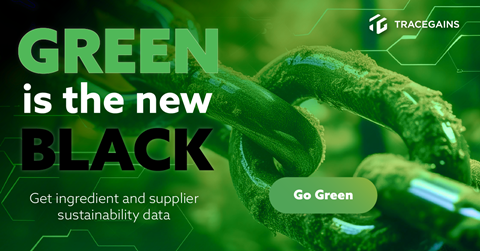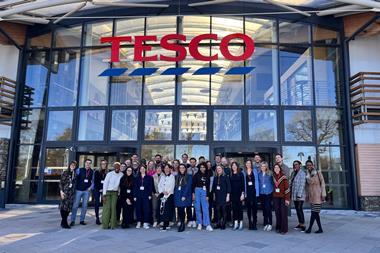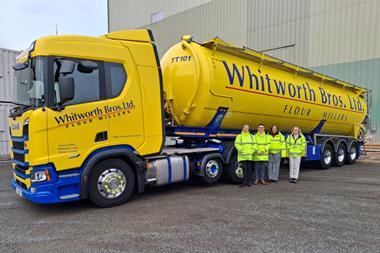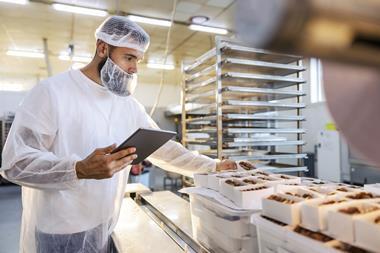As consumers grow more concerned about sustainability, environmental impact, and social responsibility, industries everywhere, including bakeries, are feeling the pressure to align with stricter environmental, social, and governance (ESG) standards.

Whether you’re a large manufacturer or a local artisan baker, the push to adopt sustainable practices is becoming harder to ignore – especially with new European regulations like the Corporate Sustainability Reporting Directive (CSRD), Corporate Sustainability Due Diligence Directive (CSDDD), and the EU Deforestation Regulation (EUDR). Consequently, technology is increasingly vital for assisting companies in fulfilling these new obligations.
The regulatory maze
● Corporate Sustainability Reporting Directive (CSRD)
The CSRD builds on earlier regulations and requires businesses to provide more detailed reports on things like carbon emissions, waste management, labour practices and governance. For bakeries, this means gathering more data from operations and supply chains. With resources often coming from all over the world, bakeries need to ensure their supply chains are both efficient and ESG-compliant. This can be daunting, especially for smaller companies without dedicated sustainability teams.
● Corporate Sustainability Due Diligence Directive (CSDDD)
The CSDDD goes a step further by holding businesses accountable for their entire supply chain’s impact on human rights and the environment. If a bakery sources ingredients from a supplier involved in deforestation or unethical labour practices, the bakery could be held responsible. Managing complex, global supply chains and ensuring every supplier adheres to high standards requires significant time, resources, and expertise.
● EU Deforestation Regulation (EUDR)
Targeting climate change and biodiversity, the EUDR requires companies importing commodities like soy, cocoa, and palm oil to prove their products haven’t contributed to deforestation. For bakeries, this means ensuring their supply chains are deforestation-free and verifiable – a task that demands an unprecedented level of traceability.
The challenges ahead
Meeting these regulations is no easy task, especially for an industry as diverse as baking. Some key challenges include:
● Complex supply chains: Tracking the origin of ingredients and ensuring they meet sustainability standards can be tough, particularly with long, multi-tiered supply chains.
● Data management: New regulations demand vast amounts of data on environmental impact and human rights practices, which can be overwhelming for bakeries lacking robust data infrastructure to collect, analyse and report this data accurately and efficiently.

● Verification and certification: Ensuring suppliers meet ESG criteria often requires third-party certifications or audits, adding another layer of complexity.
● Cost pressures: Compliance with these new regulations involves financial costs, including investments in technology and certifications – an added burden for an industry known for its thin margins.
Technology to the rescue
While these challenges might seem overwhelming, technology can play a key role in simplifying compliance and driving sustainability efforts. Digital tools that automate data collection, monitor supply chains and streamline reporting are becoming essential for bakeries aiming to meet their ESG goals.
Sustainability management solutions
One of the most effective ways to navigate ESG compliance is through sustainability management platforms. These tools help companies manage sustainability data, monitor supplier performance, and generate reports in line with regulatory requirements. For bakeries, adopting such solutions can make ESG compliance much more manageable.
For example, the TraceGains platform offers a sustainability management solution that enables bakeries to collect, track, and analyse sustainability data across their supply chains. This technology helps bakeries ensure their sourcing practices are aligned with the CSRD, CSDDD, and EUDR, making the complex task of ESG compliance more straightforward and efficient.
Specifically, bakeries can leverage the solution to:
● Track ingredient origins: TraceGains’ platform makes it easy for bakeries to see where their ingredients come from, ensuring they’re deforestation-free and ethically sourced – crucial for items like palm oil and cocoa.
● Streamline ESG reporting: The platform simplifies sustainability reporting, helping bakeries quickly generate accurate ESG reports that help comply with the CSRD, all while saving time and resources.
● Supplier risk assessment: With TraceGains, bakeries can easily assess and monitor their suppliers’ ESG performance, spotting potential risks early and protecting both their business and the environment.
● Improved transparency: TraceGains helps bakeries confirm their products are responsibly sourced, ensuring compliance with the EUDR and avoiding any reputation or financial issues.
We’re here to help
For support on how to holistically manage your ESG priorities, download the free F&B Sustainability Strategy Guide,
To access ingredient and supplier sustainability data and find out more about TraceGains Sustainability Management solution, see below.

To find out more about the role of procurement in net zero product design see TraceGains’ webinar here.
Meanwhile, to prepare global food manufacturers for new regulations surrounding emissions legislation, please click on the webinar here.
Looking ahead
As consumer expectations evolve and regulatory pressure increases, bakeries need to embrace ESG as a core part of their business strategy. While meeting new regulations like the CSRD, CSDDD, and EUDR presents challenges, the right technology can turn these challenges into opportunities. By adopting digital solutions, bakeries can not only comply with regulations but also lead the way in sustainability.
Digital tools like TraceGains’ Sustainability Management give bakeries what they need to simplify ESG compliance. With better transparency, improved traceability, and automated reporting, these solutions help bakeries stay on top of regulations while making real strides toward a sustainable future.
In a world where sustainability is becoming a necessity, the baking industry has a unique chance to make a difference. By focusing on responsible practices and embracing technology, bakeries can help build a more sustainable food system for generations to come.































